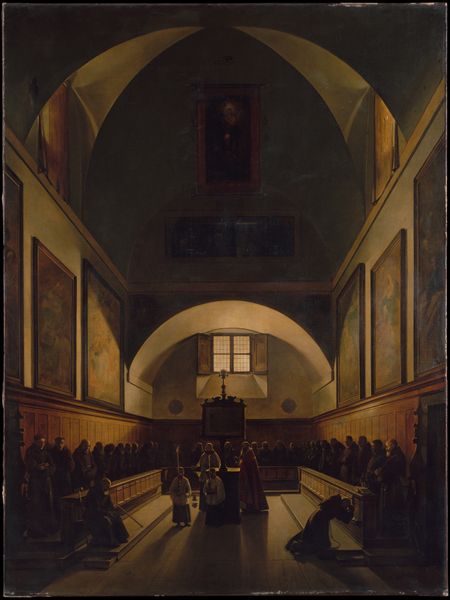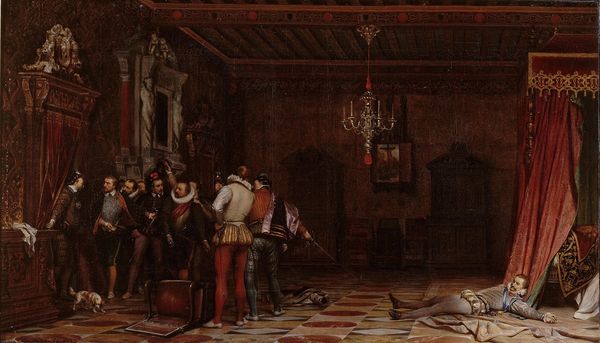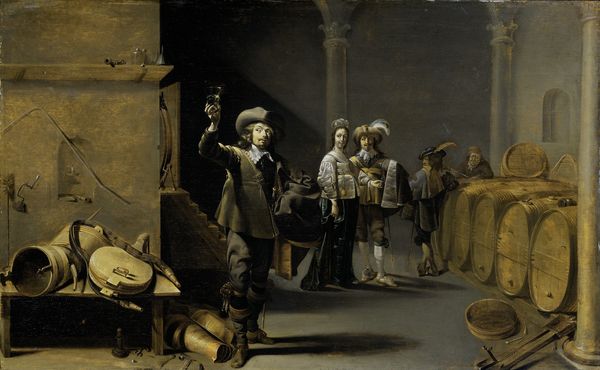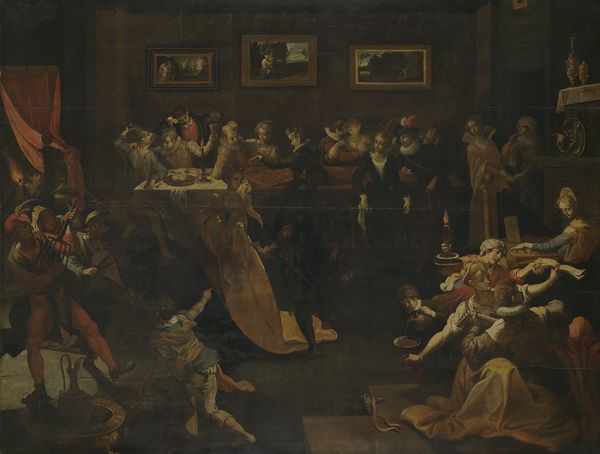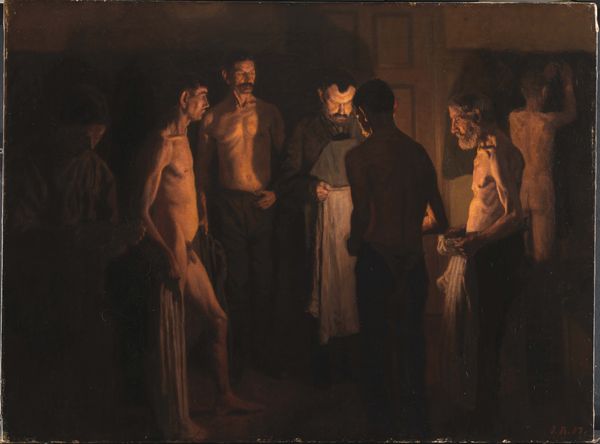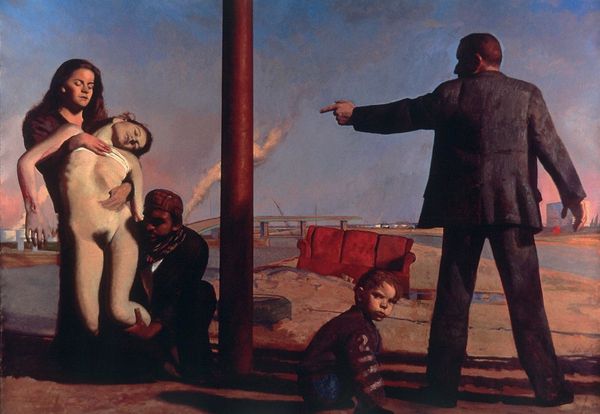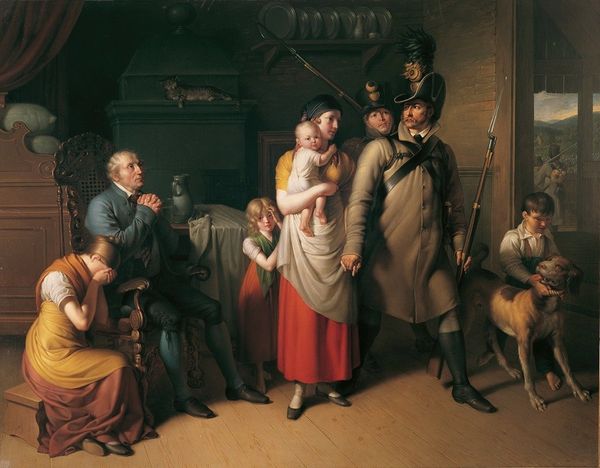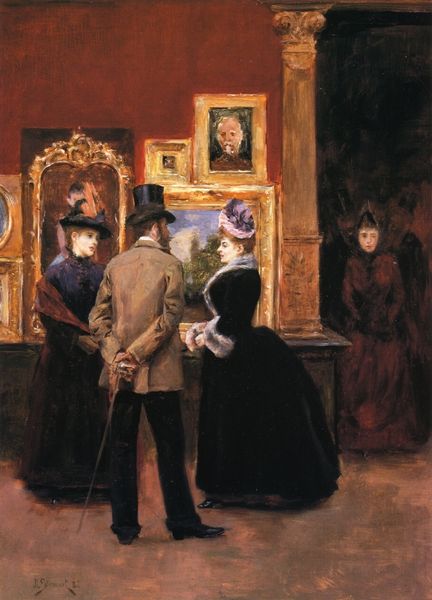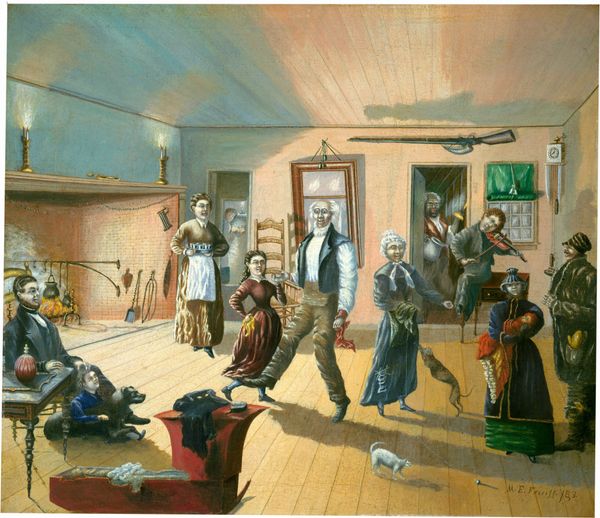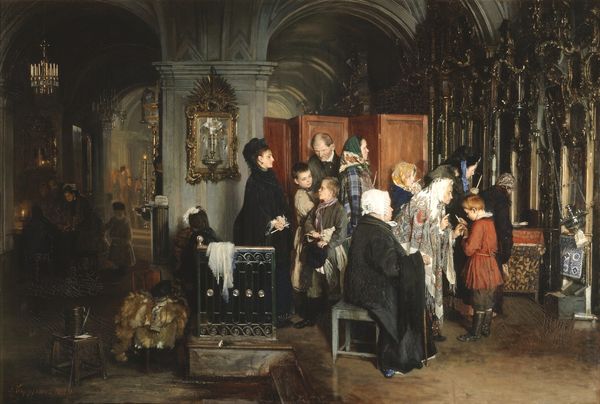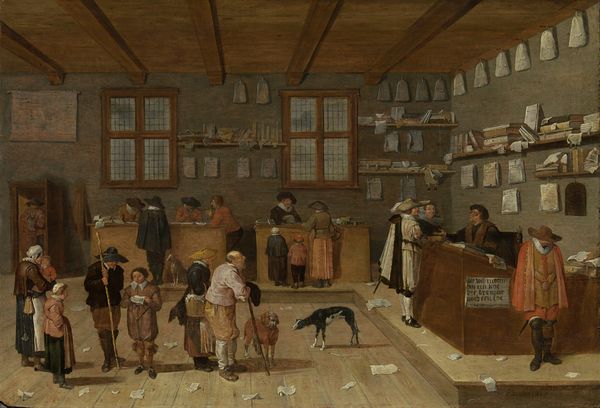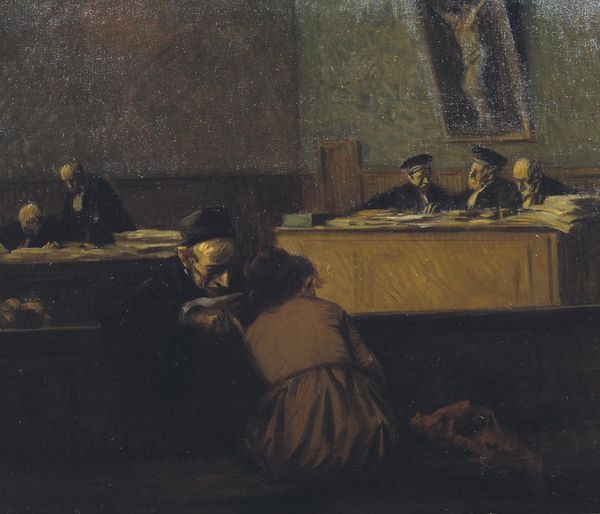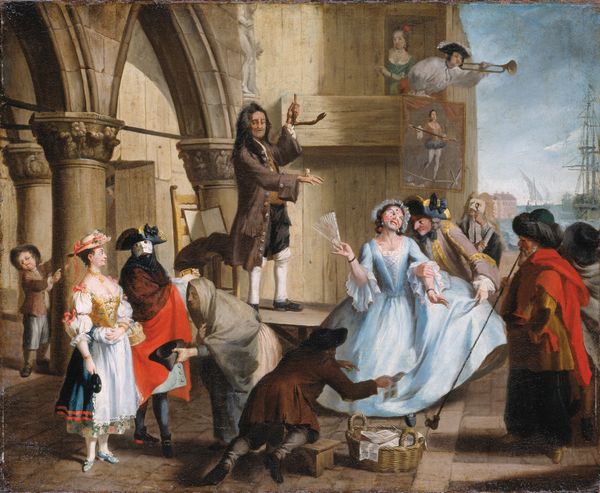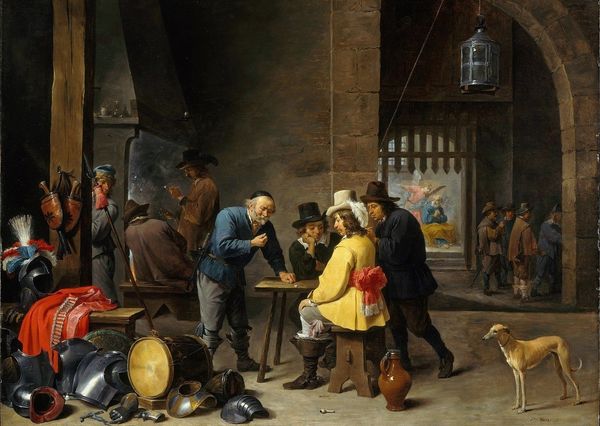
painting, oil-paint, mural
#
portrait
#
painting
#
oil-paint
#
sculpture
#
figuration
#
female-nude
#
male-portraits
#
group-portraits
#
neutral brown palette
#
genre-painting
#
history-painting
#
nude
#
surrealism
#
mural
#
modernism
Dimensions: 160 x 180 cm
Copyright: Paul Delvaux,Fair Use
Curator: Welcome, I'm keen to discuss Paul Delvaux's unsettling oil painting, "The Congress", completed in 1941. What strikes you initially? Editor: Well, immediately the painting evokes a sense of voyeurism mixed with anxiety. There's something deeply unsettling about the juxtaposition of the formal gathering in the back and the staged procession of nudes in the foreground. Curator: That interplay is key. Delvaux consistently explored dreamlike scenarios that blended classical and surreal elements. Note the architecture—classical— juxtaposed with bizarre symbolic placement. It certainly gives the figures a mythological and archetypal resonance. Editor: Right, and those suited men, they are presented as some kind of institutional authority, which, paired with the vulnerable exposure of the women, begs critical interrogation: power, gender, and who is allowed to observe whom? Curator: Precisely, and it mirrors the artist's recurrent symbolic system. Delvaux, heavily influenced by Freud, used recurring images - such as the solemn men or classical architecture to highlight themes such as suppressed desire and the collective unconscious. They recur like persistent dreams. Editor: Considering the socio-political climate of 1941, during wartime, this depiction takes on added layers. The neutrality of the setting, the almost clinical presentation of bodies—it hints at control, the objectification and perhaps exploitation that permeates conflict, even as Delvaux worked as a draughtsman in Brussels while the war was happening. Curator: Indeed. The mirroring and echoing, between figures and within spaces, seems deliberate. What endures and repeats within humanity itself? Are we doomed to our own congress of follies and suppressions? The architectural forms feel as heavy as memory itself. Editor: Absolutely. The cool tones add to the sense of alienation. This isn't simply an erotic scene; it's a portrait of alienation. Delvaux offers this tension between spectacle and authority; between display and repression. The painting compels a consideration of our complicity within systems that perpetrate such dynamics. Curator: It speaks across time, certainly. This brief dialogue only scrapes the surface, revealing just a glimpse of the rich psychological terrain charted in "The Congress". Thank you for this critical conversation, it helps contextualize the images, imbuing them with meaning. Editor: Likewise! It’s essential that these images be analyzed within a critical framework of understanding and not merely seen as a quirky tableau. The issues explored through these images still carry significant contemporary urgency.
Comments
No comments
Be the first to comment and join the conversation on the ultimate creative platform.
